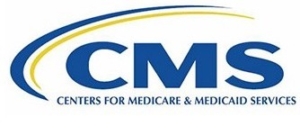House to Consider Extending Medicare Sequester Delay
 The moratorium on the two percent sequestration of Medicare payments could be extended under a bill the U.S. House of Representatives may consider this week.
The moratorium on the two percent sequestration of Medicare payments could be extended under a bill the U.S. House of Representatives may consider this week.
If adopted, the bill would extend the sequester delay for nine months, providing financial relief that many health care providers seek as they continue to deal with the financial challenges posed by COVID-19.
The sequester delay was implemented early in the pandemic as a means of providing additional Medicare revenue to hospitals and other health care providers at a time when many people were delaying seeking medical attention out of fear of contracting COVID-19.
Without action by Congress, the current delay of the Medicare sequester will expire at the end of March.
 SNAP has urged Congress to extend the Medicare sequestration delay on a number of occasions, doing so most recently in this February 5 letter to members of Pennsylvania’s congressional delegation.
SNAP has urged Congress to extend the Medicare sequestration delay on a number of occasions, doing so most recently in this February 5 letter to members of Pennsylvania’s congressional delegation.
Learn more about the latest effort to extend the Medicare sequester delay in the Fierce Healthcare article “House to vote later this week on bill to delay Medicare sequestration payment cuts.”
 There are now positive cases of COVID-19 in 60 of Pennsylvania’s 67 counties.
There are now positive cases of COVID-19 in 60 of Pennsylvania’s 67 counties. The Office of Children, Youth, and Families (OCYF) has developed these
The Office of Children, Youth, and Families (OCYF) has developed these  CMS has introduced dozens of changes that involve waivers from current regulations and requirements. A comprehensive, 26-page CMS document describing these changes can be found
CMS has introduced dozens of changes that involve waivers from current regulations and requirements. A comprehensive, 26-page CMS document describing these changes can be found  CMS is waiving current requirements to permit physicians whose privileges will expire to continue practicing at the hospital and for new physicians to be able to practice before full medical staff/governing body review and approval to address workforce concerns related to COVID-19. CMS also is waiving requirements about details of the credentialing and privileging process.
CMS is waiving current requirements to permit physicians whose privileges will expire to continue practicing at the hospital and for new physicians to be able to practice before full medical staff/governing body review and approval to address workforce concerns related to COVID-19. CMS also is waiving requirements about details of the credentialing and privileging process. CMS is waiving the requirement that physicians and non-physician practitioners must perform in-person visits for nursing home residents and will permit visits to be conducted, as appropriate, via telehealth options.
CMS is waiving the requirement that physicians and non-physician practitioners must perform in-person visits for nursing home residents and will permit visits to be conducted, as appropriate, via telehealth options. CMS is waiving various requirements that limit and define the use and documentation of verbal orders in a hospital.
CMS is waiving various requirements that limit and define the use and documentation of verbal orders in a hospital. CMS has published guidance on
CMS has published guidance on  The statement, an annual OMB document, organizes the priorities as follows:
The statement, an annual OMB document, organizes the priorities as follows: According to a new study, safety-net, academic, and rural hospitals have enjoyed improved performance under the program since Medicare began organizing hospitals into peer groups based on the proportion of low-income patients they serve rather than simply comparing individual hospital performance to that of all other hospitals.
According to a new study, safety-net, academic, and rural hospitals have enjoyed improved performance under the program since Medicare began organizing hospitals into peer groups based on the proportion of low-income patients they serve rather than simply comparing individual hospital performance to that of all other hospitals. The web site, mandated by Congress after the U.S. Department of Health and Services’ Inspector General found that some providers are being overcharged, will enable 340B-eligible providers to identify the maximum price they can be charged for covered drugs. This, HRSA believes, will help providers avoid being overcharged in the future.
The web site, mandated by Congress after the U.S. Department of Health and Services’ Inspector General found that some providers are being overcharged, will enable 340B-eligible providers to identify the maximum price they can be charged for covered drugs. This, HRSA believes, will help providers avoid being overcharged in the future. According to a new study published in Health Affairs,
According to a new study published in Health Affairs,